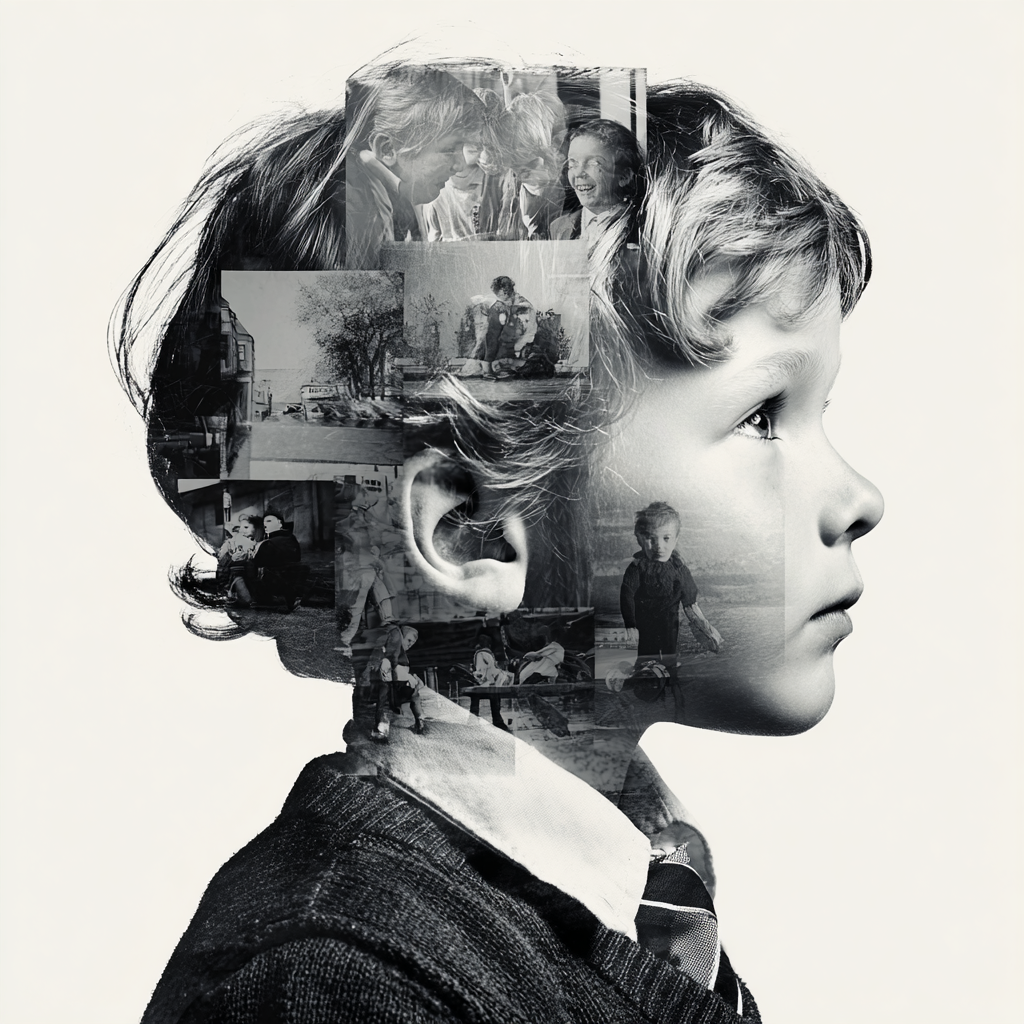Our childhood experiences Influence more than just memories—it lays the foundation for who we become as adults. From the values we adopt to the way we handle relationships and challenges, early experiences play a pivotal role in forming our adult identity. In this article, we’ll explore how the events, environments, and interactions of childhood influence our beliefs, behaviors, and self-perception later in life. Understanding this connection not only sheds light on personal growth but also empowers us to foster healthier, more fulfilling lives. Join us as we delve into the lasting impact of childhood on adult identity.
Table of Contents
- The Role of Early Attachment Styles in Shaping Adult Relationships
- How Childhood Trauma Impacts Self-Esteem and Emotional Resilience
- The Influence of Parenting Styles on Career Choices and Work Ethic
- Practical Strategies to Heal Childhood Wounds and Strengthen Personal Identity
- The Conclusion
The Role of Early Attachment Styles in Shaping Adult Relationships
Our earliest bonds with caregivers act as the blueprint for how we perceive and engage in intimate relationships later in life. When these attachments are nurturing and secure, they foster a sense of trust, emotional safety, and confidence. Conversely, inconsistent or unresponsive caregiving can lead to anxious, avoidant, or disorganized attachment patterns that often manifest in adulthood as difficulty with intimacy, fear of abandonment, or challenges with emotional regulation. Understanding these foundational dynamics is crucial in recognizing the root of relational behaviors that might otherwise seem inexplicable.
Adult relationships can be viewed through the lens of these early patterns, where individuals may:
- Seek reassurance excessively due to underlying insecurity.
- Avoid closeness as a protective mechanism against potential rejection.
- Struggle to communicate emotions, stemming from learned suppression or fear of vulnerability.
- Exhibit heightened sensitivity to perceived threats or slights, rooted in early inconsistent caregiving.
By consciously exploring these patterns, individuals can begin to reshape their relational narratives, fostering healthier connections and a more secure sense of self.
How Childhood Trauma Impacts Self-Esteem and Emotional Resilience
Experiencing trauma during childhood can fundamentally alter how individuals perceive themselves and interact with the world around them. When a child is exposed to adverse experiences such as neglect, abuse, or chronic stress, it often disrupts the development of a stable and positive self-image. This early turmoil imprints a persistent sense of vulnerability and self-doubt, which can manifest as low self-esteem in adulthood. Over time, such negative internal narratives become ingrained, creating barriers to healthy relationships and personal growth.
Moreover, childhood trauma compromises emotional resilience — the capacity to navigate and recover from life’s challenges. Adults who endured traumatic events as children frequently struggle with managing stress and regulating their emotions effectively. This can lead to heightened sensitivity to setbacks, difficulty trusting others, and a tendency to avoid situations perceived as threatening. Recognizing these patterns is crucial for healing, and supportive interventions often emphasize:
- Developing self-compassion to counteract harsh self-criticism
- Building healthy coping strategies that promote emotional stability
- Re-establishing trust and boundaries in interpersonal relationships
- Encouraging therapeutic support to process and integrate past trauma
The Influence of Parenting Styles on Career Choices and Work Ethic
Parenting styles profoundly impact not just the emotional development of children but also their professional trajectories and attitudes toward work. For instance, children raised in environments where autonomy and decision-making are encouraged often develop a stronger sense of self-efficacy, which directly influences their career choices. These individuals are more likely to pursue vocations aligned with their passions and exhibit resilience when facing workplace challenges. In contrast, parenting styles characterized by excessive control may limit the development of intrinsic motivation, leading some adults to opt for careers based on external approval or security rather than personal fulfillment.
childhood experiences Influence approaches can often be seen in:
- Work Ethic: Supportive parenting fosters responsibility and discipline, instilling values such as persistence and reliability.
- Decision-Making Skills: Authoritative parenting encourages thoughtful risk-taking, enhancing confidence in career-related decisions.
- Adaptability: Permissive parenting may lead to flexibility but sometimes lacks the structure needed for consistent performance in demanding roles.
Understanding these links not only sheds light on how formative years shape professional identities but also offers valuable guidance for parents aiming to nurture future-ready individuals. Through balanced encouragement and the promotion of independence, today’s caregivers can cultivate adults who embrace challenges and drive their own success.
Practical Strategies to Heal Childhood Wounds and Strengthen Personal Identity
Healing childhood wounds involves a compassionate journey inward, where acknowledgment and acceptance form the foundation for transformation. Start by identifying unresolved emotions linked to early experiences. Journaling or therapy can be powerful tools to uncover patterns that shaped your beliefs and behaviors. It’s important to create a safe space for yourself, allowing feelings of hurt or abandonment to surface without judgment. This conscious recognition paves the way to reframe your narrative and empowers you to cultivate resilience and self-compassion.
Building a strong personal identity after childhood trauma is a dynamic process that integrates new experiences with authentic self-expression. Embrace practices that reinforce your sense of self, such as setting clear personal boundaries, engaging in creative outlets, or surrounding yourself with supportive relationships. Incorporate the following strategies to strengthen your identity constructively:
- Mindfulness and meditation: foster present-moment awareness and reduce the impact of limiting beliefs.
- Affirmations: daily positive statements to counteract negative self-talk ingrained in early years.
- Skill-building activities: develop new competencies to boost confidence and reinforce autonomy.
- Therapeutic support: professional guidance to navigate complex emotions and reshape identity.
The Conclusion
In understanding how our childhood experiences influence who we become as adults, we gain valuable insight into the roots of our behaviors, beliefs, and relationships. While we can’t change the past, recognizing its impact empowers us to make conscious choices moving forward. By reflecting on our early experiences and seeking growth, we open the door to forming a more authentic and resilient adult identity. Remember, our childhood is just one chapter of our story—not the whole book.
Related Products
-
Sale!
Frida Mom 2-in-1 Postpartum Pads, Absorbent Perine…
Mom Original price was: $19.99.$15.19Current price is: $15.19. -
John Deere Bubble Lawn Mower for Toddlers, Bubble …
Kids $29.99 -
Hanes Men’s EcoSmart Fleece, Pullover Crewneck Swe…
Clothing $9.31







